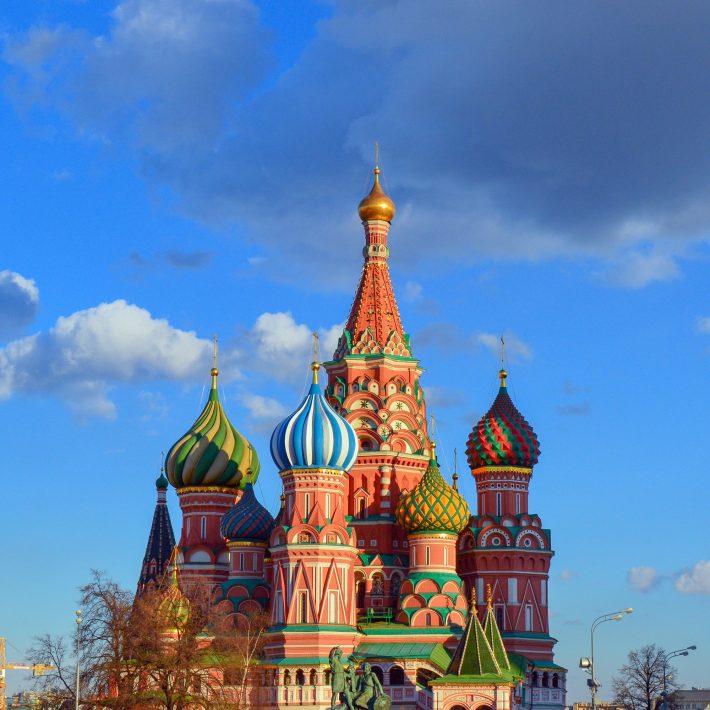Why Russian Should be the Next Language You Learn
Russian used to be a popular language to learn in the United States during the lead up to and duration of the Cold War. For all the talk of Russia these days in our news, it feels like Russian might be just as important today. With a continuous presence on any most widely spoken language list, and numerous countries outside of Russia using Russian as an official language, perhaps it’s time to brush up on your Russian, or at least find out some more about it.

Table of Contents
Photo via Pexels
Russian is a big deal
Russian is the most widely spoken language across Eurasia—at least, geographically-speaking, it is. It is also the most spoken of the Slavic languages outstripping both Polish and Ukrainian. There are around 144 million native speakers of Russian throughout Russia, Ukraine and Belarus. And while we’re still on the big numbers, Russian has a massive 265 million speakers worldwide, 154 million as a mother tongue and the remainder as an L2 language.
Russian is the official language of Russia, Belarus, Kazakhstan, Kyrgyzstan, Tajikistan, Moldova and Gagauzia. It is also official for the partially-recognised states of Abkhazia and South Ossetia, and the unrecognised states of Transnistria, Donetsk People’s Republic and Luhansk People’s Republic. And if that isn’t enough, Russian is an important second language in these countries as well: Armenia, Azerbaijan, Estonia, Georgia, Israel, Latvia, Lithuania, Moldova, Mongolia, Tajikistan, Turkmenistan, Ukraine and Uzbekistan.
And finally, Russian even reaches the not-quite-depths of space, as one of two official languages spoken by NASA astronauts on the International Space Station!

Photo via Pexels
On to the basics
Russian uses letters from the Cyrillic script and sits on the East Slavic branch of the Indo-European family tree. There are fourteen dialects, though there aren’t too many differences between them. The standard Russian — современный русский литературный язык — is what you will most likely have heard on the news and other programmes.
The Russian alphabet has 33 letters, and outside of Russia the language is often transliterated using the Latin alphabet for using with computers due to a lack of Cyrillic keyboards. There are five vowels that are written with different letters depending on the consonant they are following, and consonants are typically in either plain or palatalised pairs, traditionally referred to as hard and soft.
Syllable structure is complex and tends to trip up any new Russian learners. The first and last consonant clusters of a syllable can be up to four consecutive sounds, with a worst case scenario resulting in only one vowel in the middle of them all! Thankfully they aren’t too common, giving us words like всплеск (pronounced fsplyesk) — splash, and встрéтить (pronounced fstryétit’) — to meet.
There are personal, possessive, interrogative, relative, demonstrative, determinative, negative and indefinite pronouns. Russian makes use of six different types of numerals and six separate cases, along with the various prepositions, verbs, adverbs, particles and conjunctions. In short, Russian isn’t for the faint-hearted. There is a lot for learners to get to grips with!
Learning Russian? Check out our free placement test to see how your level measures up!
Why learn Russian?
Still don’t think Russian is an important language? Think again!
Russian is an official language for all of the following: United Nations, International Atomic Energy Agency, World Health Organization, International Civil Aviation Organization, UNESCO, World Intellectual Property Organization, International Telecommunication Union, World Meteorological Organization, Food and Agriculture Organization, International Fund for Agricultural Development, International, Criminal Court, International Monetary Fund, International Olympic Committee, Universal Postal Union, World Bank, Commonwealth of Independent States, Organization for Security and Co-operation in Europe, Shanghai Cooperation Organisation, Eurasian Economic Community, Collective Security Treaty Organization, Antarctic Treaty Secretariat, International Organization for Standardization, GUAM Organization for Democracy and Economic Development and the International Mathematical Olympiad.
With the Russian language playing a vital part in all of these organisations, we think you will agree, Russian is an important language for you to know. Learning any language broadens your horizons, and given our current political climate, it seems that what goes on in Russia is important for us all to be aware of.

Photo via Pexels
Your turn
We’ve convinced you, haven’t we? Here are a few words and phrases to get you started. Note that it’s English first, Russian second, and pronunciation in the Latin alphabet third.
Welcome Добро пожаловать! (Dobro požalovat’!)
Hello Здра́вствуйте! (Zdravstvujte!)
How are you? Как дела? (Kak dela?)
What’s your name? Как тебя зовут? (Kak tebja zovut?)
My name is __. Меня зовут __. (Menja zovut __.)
Where are you from? Oткуда вы? (Otkuda vy?)
I’m from __. Я из __. (Ja iz __.)
Pleased to meet you Очень приятно (Očen’ prijatno)
Goodbye До свидания! (Do svidanija!)
Good luck! Удачи! (Udači!)
Cheers! За здоровье! (Za zdorov’e!)
Yes Да (Da)
No Нет (Net)
Maybe Может быть (Možet byt’)
I don’t know Я не знаю (Ja ne znaju)
I understand Я понимаю (Ja ponimaju)
I don’t understand Я не понимаю (Ja ne ponimaju)
Whether your interest in Russian is political, purely setting yourself a difficult language challenge or wanting to be able to work your way through the wealth of Russian literature, learning Russian will open your eyes to a part of our world that so many of us never get to experience, or understand. What are you waiting for?


